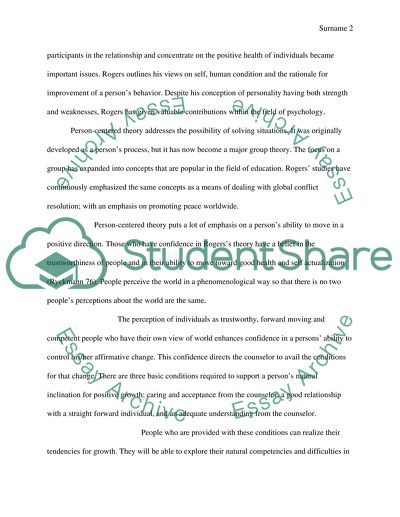Cite this document
(“Person-Centered Theory by Carl Rogers Research Paper”, n.d.)
Retrieved from https://studentshare.org/psychology/1462067-person-centered-theory-by-carl-rogers
Retrieved from https://studentshare.org/psychology/1462067-person-centered-theory-by-carl-rogers
(Person-Centered Theory by Carl Rogers Research Paper)
https://studentshare.org/psychology/1462067-person-centered-theory-by-carl-rogers.
https://studentshare.org/psychology/1462067-person-centered-theory-by-carl-rogers.
“Person-Centered Theory by Carl Rogers Research Paper”, n.d. https://studentshare.org/psychology/1462067-person-centered-theory-by-carl-rogers.


